
Lemongrass is an herb native to India and Sri Lanka. It is characterized by tall striped leaves, jagged edges and a sharp, lemony scent. Lemongrass is used in soups, sauces and marinades for meats and seafood. The herb also acts as a mosquito repellent. In addition, the application or ingestion of lemongrass can help alleviate various skin issues, from large pores to fungal infections. As with any medical condition, consult your doctor if skin problems become serious.
Beneficial Properties
Lemongrass is an anti-microbial and anti-bacterial herb. This means it will help limit bacterial or microbial growth on the skin. It can help ward off skin infections as well as lessen skin issues caused by bacterial infections, such as folliculitis and cellulitis. Lemongrass is also fungicidal, which means it helps cure fungus infections on the skin. The herb also acts as an astringent, which constricts the skin. This helps to minimize pores, limit the secretions of oil and provide a temporary skin-firming treatment.
Lemongrass Tea
Lemongrass can be made into a tea using dried or fresh lemongrass leaves, as well as the bark and seeds. However, the amounts for each vary. For fresh lemongrass tea, use 1/4 cup of fresh leaves, according to the Ageless website. To make tea with dried lemon grass, use two teaspoons. Use two teaspoons of seeds and one tablespoon of bark. For any of these lemongrass variations, pour one cup of boiling water over the material and allow it to steep for five minutes. Then strain out the lemongrass and drink the liquid.
Essential Oil Application
Apply lemongrass essential oil to the affected skin area to benefit from the herb’s anti-fungal and astringent properties. Essential oils are highly concentrated, so lemongrass oil should be diluted with water or another base, such as olive oil, before use. To make lemon grass oil, mix one cup olive oil and 1/2 cup of fresh sliced and peeled lemongrass. Heat in a saucepan for five minutes, says the My Recipes site. Remove from heat and allow to cool before use.
Considerations
Lemongrass essential oils, like any other essential oil, should not be used by those who have sensitive or highly damaged skin, as it can cause irritation. Before applying the oil, be sure to test it on small section of inconspicuous skin, such as along the hairline on your neck, advises the Ageless site. If you do not see a negative skin reaction in 14 hours, you can apply the oil in other areas. However, you may still experience a reaction.
Warning
Be certain the material you have purchased is pure lemongrass, as unknown additives to the herb can cause unforeseen reactions. Lemongrass is very powerful and may cause side effects when applied or ingested. Before any application or ingestion, consult your health care professional to determine whether lemongrass treatments are right for you.
Related Articles

The Use of Neem Juice in Skin Care as ...

Chamomile Essential Oil Benefits

Anise Seed Cautions and Side Effects

Burdock Root for Acne
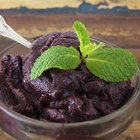
Acai Berry & Acne
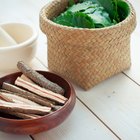
Neem Bark Benefits

Aloe Vera Gel As a Wrinkle Reducer
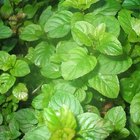
Is Peppermint Oil Good for Skin Care?

Hop Allergies

Uses for Castor Oil on the Skin

Chamomile & Aloe Skin Care
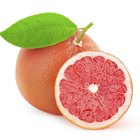
Grapefruit Seed Extract for Melasma
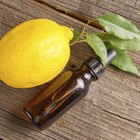
Lemon Essential Oil for Eczema
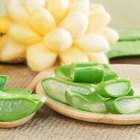
What Is Aloe Good For?
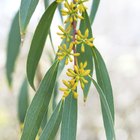
Eucalyptus Oil & Acne

Hair Loss Resulting From Henna Use

What Are the Benefits of Aloe Vera & ...

Neutrogena Ingredients

Arnica for Acne

Neem & Turmeric Powder for Pimples
References
Writer Bio
Sarah Thompson has been a writer since 2006. She has contributed to Ohio-based publications such as "CityScene" and "Dublin Life" magazines, as well as Columbus' top alternative weekly, "The Other Paper." Thompson has also written for several online outlets, including Smashing Magazine and Web Designer Depot. She holds a Bachelor of Arts in journalism, sexuality studies and visual communication design from Ohio State University.
Photo Credits
Bottle of Olive Oil image by kellykramer from Fotolia.com